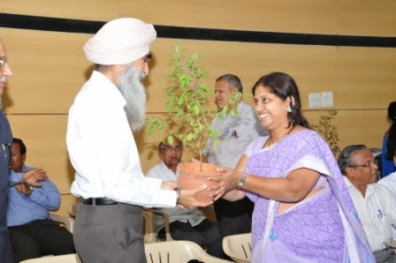A song of recognition for more than 2,000 millions of women and men family farmers, smallholders, artisanal fishers, pastoralists, landless peasants and indigenous communities in the world.
The International Year of Family Farming IYFF-2014 was officially launched on Nov. 22, during an event at the United Nations’ headquarters in New York. This official act highlighted the potential of Family Farming in the fight against Hunger and Poverty, and became a song of praise and recognition for more than 2,000 millions of women and men family farmers, smallholders, artisanal fishers, pastoralists, landless peasants and indigenous communities in the world.
The official launch was chaired by the Director General of FAO, José Graziano da Silva, representatives of the Secretary-General and the General Assembly of the UN, and a delegation of the World Rural Forum (WRF). On behalf of more than 360 organizations from 60 countries who supported the campaign for the declaration of the IYFF-2014, the Executive Secretary of FRM, José María Zeberio, and the Coordinator of the Civil Society Program for the IYFF-2014, José Antonio Osaba, participated in the event.
During the launch event, special ambassadors for the IYFF-2014 were also appointed: Ibrahim Coulibaly, President of the National Coordination of Peasant Organizations of Mali; Mirna Cunningham (Nicaragua), former Chair of the UN Permanent Forum on Indigenous Issues; and Gerd Sonnleitner (Germany), president of the European Farmers’ Association.
With the same value and importance, simultaneous activities took place in more than 20 countries on the occasion of the launch of the IYFF-2014, organized by National Committees and other organizations adhered to the campaign. Throughout the week prior to launch, thousands of farmers and citizens participated in public hearings, press conferences, meetings and marches organized to claim the role of men and women from the countryside and the sea.
Among others, 40 family farmers’ organizations in New Zealand met with members of the National Parliament, in an act that served to introduce the IYFF-2014 to the representatives of New Zealand citizenship. In Uganda, a seminar, an exhibition and a march preceded the meeting of the IYFF-2014 National Committee with the Ugandan Minister of Agriculture. Besides, in Costa Rica, the vice-minister of Agriculture also participated in the launch event organized by the 21 organizations participating in the National Committee.
In India, a farmer centric event launched the IYFF-2014 in Bangalore, thanks to different organizations, research and training centers. It was attended by smallholder farmers representing drought prone dry land regions from three southern states, who shared their experiences and exchanged with experts on how Family Farming could be strengthened through better policy support. It provided a great opportunity to hear how family farms meet their multiple needs, how their ecological farms bring down costs of cultivation and dependencies on external inputs. The inauguration of the IYFF-2014 launch was done by watering a potted plant.
The IYFF-2014 was also at the core of several meetings and exhibitions of local and regional nature held in Colombia, as well as in agricultural fairs organized in Burkina Faso, Burundi and Senegal. In Slovakia, stands were placed in different events and a conference on Family Agriculture was held.
In countries such as Spain, USA, Mexico and Bolivia, some press conferences took place, while other launch events were organized in the Philippines, France, Ivory oast, Brazil, Pakistan, Kenya, India and El Salvador. Paraguay, Ecuador, Togo, Switzerland and Nepal will host launch activities in the upcoming weeks.



